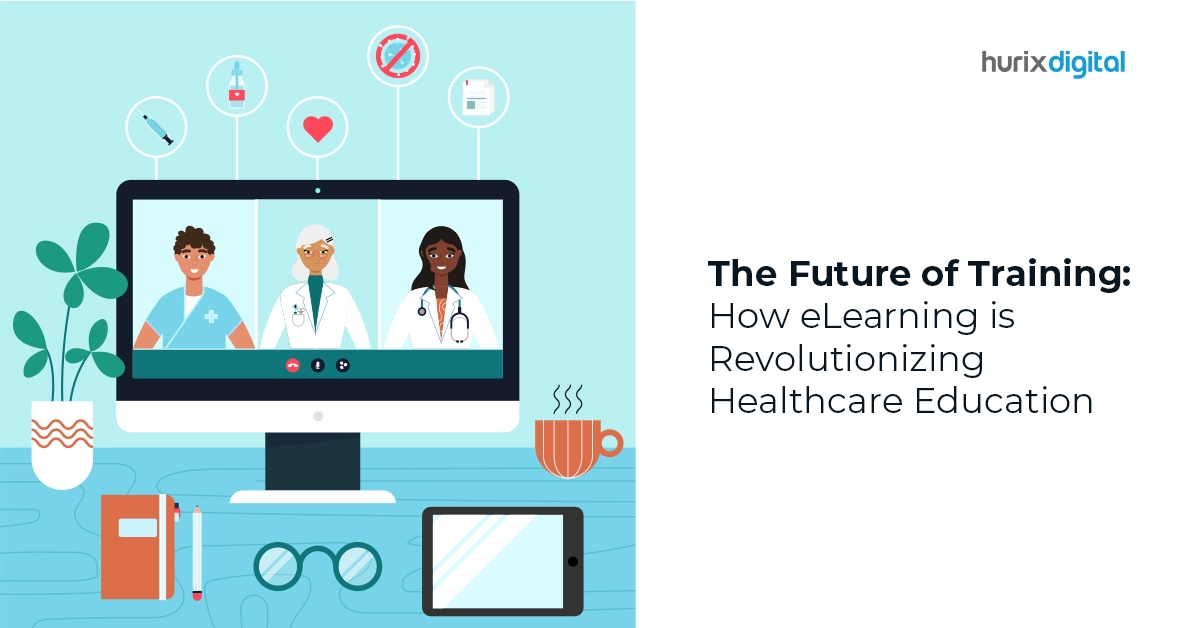The Future of Training: How eLearning is Revolutionizing Healthcare Education
In today’s rapidly evolving healthcare landscape, staying abreast of the latest advancements is essential for both professionals and students alike. As the demand for skilled healthcare professionals continues to rise, so does the need for innovative training methods that can keep pace with this ever-changing field. Enter eLearning, a transformative approach that is revolutionizing healthcare education as we know it.
eLearning in healthcare encompasses the use of electronic devices and digital platforms to deliver educational content to healthcare professionals and students. This can include a wide range of resources such as online courses, interactive modules, virtual simulations, webinars, and mobile applications. Unlike traditional classroom-based learning, eLearning allows learners to access educational materials remotely, at their own pace, and often in a more interactive and engaging format.
Table of Contents:
- The Components of eLearning in Healthcare
- Why is eLearning Important in Healthcare Education?
- How Can eLearning Be Helpful in Healthcare Education?
- When Can eLearning Be Used in Healthcare Education?
- Conclusion
The Components of eLearning in Healthcare
- Online Courses: These are structured educational programs delivered via the internet, covering a variety of healthcare topics ranging from clinical skills to administrative tasks. Online courses may include lectures, readings, quizzes, and assignments, all accessible through a web-based platform.
- Interactive Modules: Interactive modules incorporate multimedia elements such as videos, animations, and simulations to enhance the learning experience. These modules allow learners to actively engage with the content, reinforce key concepts, and practice skills in a virtual environment.
- Virtual Simulations: Virtual simulations replicate real-world clinical scenarios, allowing learners to apply their knowledge and skills in a safe and controlled setting. These simulations can be especially valuable for practicing complex procedures, decision-making, and teamwork skills.
- Webinars: Webinars are live or recorded presentations conducted over the internet, often featuring subject matter experts discussing specific healthcare topics. Webinars offer an interactive platform for learning, allowing participants to ask questions, share experiences, and engage in discussions with peers and instructors.
- Mobile Applications: Mobile applications provide on-the-go access to educational resources, enabling learners to study anytime, anywhere, using their smartphones or tablets. These apps may offer flashcards, practice quizzes, reference materials, and other tools to support learning on the move.
Also Read: eLearning 101: A Comprehensive Guide to Getting Started in 2024!
Why is eLearning Important in Healthcare Education?
The importance of eLearning in healthcare education cannot be overstated. With the rapid advancements in medical knowledge and technology, traditional methods of training are often unable to keep pace. eLearning offers a solution to this challenge by providing a dynamic and adaptable learning environment that can be easily updated to reflect the latest developments in the field.
Furthermore, eLearning caters to the diverse learning styles and preferences of students, allowing them to engage with content in a manner that suits their individual needs. Whether through interactive simulations, multimedia presentations, or self-paced modules, eLearning empowers learners to take control of their education and maximize their understanding of complex concepts.
How Can eLearning Be Helpful in Healthcare Education?
The benefits of eLearning in healthcare education are manifold. Firstly, it enhances accessibility by breaking down geographical barriers and allowing students from across the globe to access high-quality educational resources. This is particularly advantageous for rural or remote communities that may have limited access to traditional educational institutions.
Secondly, eLearning promotes flexibility and convenience, enabling students to balance their studies with other commitments such as work or family responsibilities. With the ability to learn at their own pace and on their own schedule, learners can optimize their time and tailor their educational experience to suit their individual needs.
Additionally, eLearning fosters active engagement and participation through interactive features such as quizzes, discussion forums, and virtual labs. By encouraging collaboration and critical thinking, these tools help to reinforce learning objectives and enhance retention of information.
When Can eLearning Be Used in Healthcare Education?
eLearning can be incorporated into various aspects of healthcare education, from undergraduate and graduate programs to continuing education and professional development initiatives. It can be used to supplement traditional classroom instruction, provide refresher courses for practicing professionals, or deliver specialized training in emerging areas of healthcare.
Moreover, eLearning is particularly well-suited for hands-on training and skills development, thanks to the emergence of virtual reality (VR) and augmented reality (AR) technologies. These immersive simulations allow learners to practice clinical procedures in a safe and controlled environment, without the need for expensive equipment or risk to patient safety.
Also Read: 7 Key Considerations for Finding the Best eLearning Solution Provider
Conclusion
In conclusion, the future of training in healthcare education lies in the seamless integration of eLearning technologies. By harnessing the power of digital innovation, educators can create dynamic and engaging learning experiences that empower students to excel in their chosen field. Embracing eLearning is not just about keeping up with the times; it’s about shaping the future of healthcare education for generations to come.
If you’re ready to embrace the future of healthcare education with eLearning solutions tailored to your institution’s needs, look no further than Hurix Digital. Our comprehensive suite of digital learning services is designed to elevate the training experience and drive meaningful outcomes for both learners and educators. Contact us today to learn more about how Hurix Digital can help you unlock the full potential of eLearning in healthcare education.

Senior Vice President – Business Development
Over 25 years of experience in the edtech and workforce learning industry with strong skills in Business Development, Customer Relationship Management (CRM) and Strategy.









